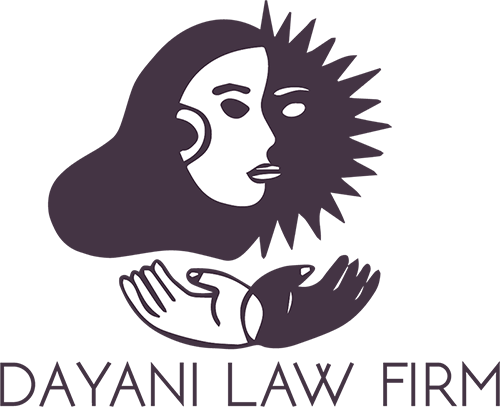
Stepping Out of the Dark Suit
(This article, authored by Lauren Dayani, was published in the Washington State Bar News Magazine April/May 2021 edition)
I was admitted to the Bar in 2012, and I guess you could call me a millennial. Coming out of law school at the tender age of 24, I had a very specific idea of what a lawyer looked like. There seemed to be a common understanding in the profession that there is a certain way to be—a particular way a ”real” lawyer dresses, talks, writes, and acts. A formality to it all. You are inducted into the mystical land of the barrister, so you speak the language of legalese. You put on the dark suit. The sentiment seemed to be that it has been this way since the white wigs, and for God’s sake we all had to get through 1L and take (not to mention pass) the bar exam to get here, so yes, it is a special club with special rules. Learn the rules and conduct yourself in this specific way or get out.
So I did. And I was proud of it at first, proud to wear the dark suit. I was in the club! I made it! I am a lawyer! Now respect me. Be afraid of what this dark suit can do. Yet as I settled into the profession, the dark suit identity always felt a little stiff to me. A little too stuffy and tight around the collar. I found it kind of hard to breathe in, actually.
I’ve had a few different roles in my legal career so far, in government and private practice, and now my husband and I run our own law firm. I have been so grateful for this most recent iteration of my career, because being the boss means I make the rules, and making my own rules caused me to ask myself whether the dark suit is necessary—and if it is even a hindrance—for me to do my job in the best possible way.
It’s like roots that grow up and bloom into a sprout, instead of a sprout trying to force down a particular image of what its roots need to look like.
Bit by bit I’ve loosened the collar of the itchy suit, taking small but steady steps away from the way I am “supposed” to be in this profession, away from blindly copying the cadence and standards set by those before me, which were set by those before them, and those before them. At what point do we question what, for us, is no longer relevant or effective? For me, to step out of the dark suit is to come into something more natural, and I suspect it is in what is natural where true power lies.
And I’m not losing clients, getting taken less seriously in court, or sacrificing my authority with opposing counsel. It is quite the opposite. There is a sort of magic that happens when you move with honesty. There is a magnetic quality to it. You attract good cases, the clients you want, the results you seek. It’s like the great world out there can sense that you are being YOU—not trying to fake it as anyone or anything else—and is automatically drawn to your you-ness.
I challenge the unspoken understanding of the way we all “are supposed to be” as lawyers—the stuffiness, the formality, the long and complicated prose (especially to our clients), the aggressive (including passive-aggressive) emails, the antagonism, the metaphorical (or literal) high heels and shoulder pads— if none of that is really you.
There is something very effective about authenticity in our cases. There is some – thing so powerful about approachability with our clients. There is something very productive about warmth and directness with opposing counsel, administrative staff, or anyone else we deal with in our day. There doesn’t need to be so much puffery. It doesn’t have to be so much of a fight. We can have smoothness and ease even in the most difficult parts of our work by being more real.
I was very moved recently to receive a set of discovery responses from opposing counsel that simply, and in an incredibly straightforward manner, answered the questions posed. No long list of rambling objections. No dodging or deferring to answer until a later time. Just a simple response, because that’s what the case really called for.
It blew my mind.
What a beautiful way to move as a lawyer.
Of course we go to bat when it’s required, and of course we don’t become a doormat. Doing this work with honesty and humanness doesn’t mean you become weak. It means you work from a place of what is true. You move from a wide-open heart. Clear and direct. No hostility, no unapproachable dark suit. Turns out, it’s just not needed.

Lauren Dayani is a partner and attorney at Dayani Law Firm, a boutique personal in – jury and criminal defense law firm in Seattle. She runs the firm with her husband Andre. They met as law students at Seattle University, and these days enjoy spending time with their three chickens and dog, Baloo. Lauren offers free consultations and speaks clearly and honestly about your options after a car accident. Send her an email at lauren@dayanilawfirm.com or call us at (206) 777-5627.
